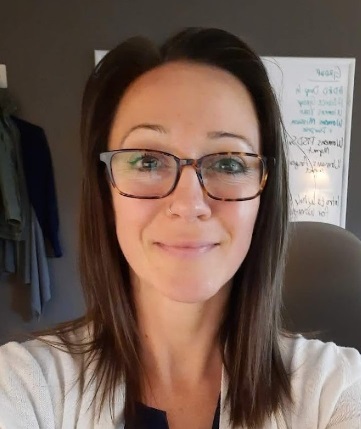Center to Improve Veteran Involvement in Care (CIVIC)
Investigator Story Belle Zaccari PsyD
Written by Noah Jacobson

Psychology research may not seem like a sport, but for Dr. Belle Zaccari it just might be. “I love the competition of it; I compete mostly against myself and that inspires and motivates me,” explains Dr. Zaccari. Not surprisingly, Dr. Zaccari enjoys practicing yoga and strength training. Staying humble and embracing the learning process keeps Dr. Zaccari moving in the gym, on the yoga mat, and in the lab.
What began as a personal interest in yoga 25 years ago became a focal point of Dr. Zaccari’s research. During her Advanced Psychology Postdoctoral Fellowship Program in Mental Illness Research and Treatment (MIRT) with the Mental Illness Research Education and Clinical Center (MIRECC) in 2014, she received mentorship from Dr. Jennifer Loftis who assisted Dr. Zaccari on a small pilot trial of trauma sensitive yoga for Veterans with PTSD.
After a successful pilot trial and fellowship, Dr. Zaccari took an interest in serving rural Veterans and their unique needs. As a clinician in the rural telemental health clinic, she gained invaluable experience in telehealth long before its widespread implementation post-pandemic, an avenue she continues to explore. During this time, she collaborated with researchers who were interested in yoga as a therapy for PTSD including her current mentor, Dr. Travis Lovejoy. She credits Dr. Lovejoy for encouraging integration of chronic pain into her CIVIC research. She elaborates, “Veterans with pain and PTSD are at a high risk of suicide and they live with a low quality of life and less access to care.” Dr. Zaccari believes this historically unaddressed comorbidity interferes greatly with the improvements that Veterans can reap from treatment. Combining telehealth and Complementary and Integrated Health (CIH) may hold key solutions for Veterans with complex comorbidities.
With PTSD and chronic pain as her new target, Dr. Zaccari is currently analyzing qualitative data from patients at VA Portland Health Care System. The project entails interviewing veterans, providers, managers and administrators who deal with this comorbidity, and collaboration with VA providers and researchers nationwide. Dr. Zaccari embraces finding consensus of the critical components for integrated treatments and identifying facilitators and barriers to implementation. Clearly, opportunities for learning remain abundant.
Dr. Zaccari relies on a growth mindset in all she does. Her team members Miles Evanisko and Tiona Wu possess similar mindsets. She praises Dr. Loftis and Dr. Lovejoy for their lessons on conducting high quality ethical research and continued guidance. “I love embracing that I don’t know everything and learning from other people,” muses Dr. Zaccari. Equally important for Dr. Zaccari is self-advocacy. Even with fleeting “Imposter Syndrome,” she encourages “pressing supervisors to support you to do things differently” and not being afraid to “teach decision makers what they don’t know and should be supportive of.”
Dr. Zaccari’s appetite for heavy lifting is just beginning. With the movement towards more holistic care through the VA’s Whole Health model, she eyes aiding the Office of Patient Centered Care and Cultural Transformation in scaling up CIH approaches for veterans. “The next step is to get integrated treatments for both pain and PTSD more widely available into the VA healthcare system,” remarks Dr. Zaccari. The Health Services Research and Development Service (HSR&D) Career Development Award she is applying for this winter will tackle this topic.
Any yoga practitioner or experienced weightlifter knows the importance of balance and flexibility. Walks, flexing her growing manuscript-writing muscles, occasional online shopping, mindless TV (hint: Keeping Up with the Kardashians), and an impressive house plant collection keep her thriving. Lived experience with Whole Health values and CIH make Dr. Zaccari a key advocate for improving the quality of life of veterans with pain and PTSD.



















